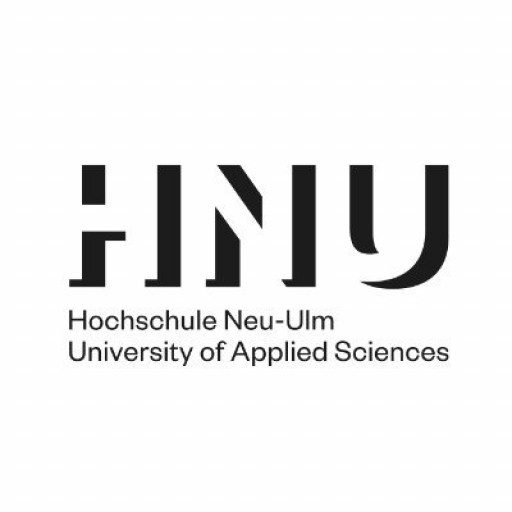Photos of university / #uniofnottingham
The BSc (Hons) in Computer Science at the University of Nottingham offers students a comprehensive and rigorous education in the fundamental and advanced aspects of computing. This programme is designed to equip students with a strong theoretical foundation and practical skills necessary to succeed in the rapidly evolving technology industry. Throughout the course, students will explore core topics such as programming, algorithms, data structures, software engineering, and computer systems. The curriculum also covers specialized areas including artificial intelligence, machine learning, cybersecurity, database management, and web development, allowing students to tailor their learning to their interests and career goals.
Students benefit from state-of-the-art facilities and laboratories, enabling hands-on experience with modern tools and technologies. The programme emphasizes problem-solving, critical thinking, and collaborative skills through project-based assessments and teamwork. Industry placements, internships, and engagement with real-world projects are integral components of the programme, providing invaluable practical experience and industry insights. The inclusion of contemporary topics ensures graduates are well-prepared for careers in software development, systems analysis, network management, or further research and postgraduate study.
The University of Nottingham’s strong academic reputation, combined with excellent links to industry and innovation hubs, offers students a vibrant learning environment. Support services, dedicated academic staff, and active student communities help foster a challenging yet enriching educational experience. Graduates of the programme are equipped with the technical expertise, problem-solving abilities, and adaptability required to excel in the fast-changing realm of technology and computing industries around the world.
The Bachelor of Science in Information Technology at the University of Nottingham offers a comprehensive curriculum designed to equip students with the essential skills and knowledge required to excel in the fast-evolving field of information technology. Throughout the program, students will explore a broad range of topics, including programming languages, software development, database management, networking, cybersecurity, and systems analysis. The course emphasizes practical skills alongside theoretical foundations, ensuring graduates are well-prepared for real-world challenges.
Students will engage in hands-on projects and laboratory work, fostering problem-solving abilities and technical competence. The program also covers emerging areas such as cloud computing, artificial intelligence, machine learning, and data science, providing a modern and industry-relevant education. Alongside technical training, students will develop important soft skills such as teamwork, communication, and project management, which are vital for successful careers in the IT sector.
The program is structured to include core modules that establish fundamental concepts, as well as optional modules allowing students to specialize in areas of personal interest. In addition to face-to-face lectures and tutorials, students have access to state-of-the-art laboratories and computing facilities, enhancing their learning experience. The university also encourages active participation in internships, industry projects, and collaborative research, giving students valuable practical exposure and networking opportunities.
Industry partnerships and guest lectures from leading technology companies ensure that the curriculum remains aligned with current trends and demands. The university's strong emphasis on employability prepares graduates for a wide range of roles, including software developer, network analyst, cybersecurity specialist, systems administrator, and data analyst. Graduates of the program are well-positioned to pursue postgraduate studies or embark on careers in the vibrant and expanding technology industry.
At Nottingham, students benefit from a supportive learning environment, experienced faculty, and a vibrant campus community. The program aims to produce not just competent IT professionals but also innovative thinkers who can contribute positively to their organizations and society. Graduates leave the program with a solid foundation in information technology, analytical skills, and a proactive approach to problem-solving, ready to advance in a competitive global market.
Program requirements for the Bachelor of Science in Information Technology at the University of Nottingham include a range of academic and personal prerequisites designed to ensure students are well-prepared for the challenges of this multidisciplinary field. Prospective students are typically expected to hold qualifications equivalent to A-Levels, with strong performance in Mathematics and Science subjects being highly regarded. For international applicants, recent qualifications such as the International Baccalaureate (IB), with a recommended score of at least 34 points including higher level subjects in Science or Mathematics, are considered appropriate. Additionally, proficiency in English language is mandatory, with a minimum score generally expected to be at least IELTS 6.0 to 6.5, or equivalent, to ensure students can effectively engage with course materials and participate in academic activities.
The program also emphasizes the importance of foundational knowledge in computer science principles, including understanding algorithms, programming, and system architecture. While prior programming experience is not strictly required, applicants are encouraged to have some exposure to programming languages such as Python, Java, or C++ to facilitate a smoother transition into the course. Moreover, applicants should demonstrate analytical thinking, problem-solving skills, and an aptitude for logical reasoning.
Personal qualities such as motivation, teamwork ability, and communication skills are considered through the UCAS personal statement and references. The university may also assess candidates’ interest in information technology through previous coursework, work experience, or extracurricular activities related to computing and digital technology. For mature students or those without traditional qualifications, evidence of relevant work experience or professional development can be submitted for consideration.
In summary, the typical entry requirements include academic qualifications equivalent to high school completion with strong performance in STEM subjects, proficiency in English, and a demonstrated interest in computing. The university aims to admit students who can not only meet the academic demands but also contribute to the dynamic and innovative environment of the program.
Tuition fees for the Bachelor of Science in Information Technology at the University of Nottingham vary depending on the student's nationality and the specific campus. For UK students, the annual tuition fee is approximately £9,250. International students from outside the UK are typically charged higher fees, which are around £24,000 per year. These fees cover access to university facilities, teaching resources, and standard academic support. The duration of the program is three years for full-time study, and total tuition costs are estimated to be between £27,750 and £72,000 depending on the student's residency status.
Students are encouraged to explore various sources of financial aid to support their studies. The university offers a range of scholarships and bursaries, particularly for high-achieving students and those demonstrating financial need. Some scholarships are merit-based, focusing on academic excellence, while others consider socioeconomic backgrounds. International students may be eligible for specific global scholarships, which can significantly reduce overall costs.
In addition to scholarships, students can access government-backed student loans, such as those provided by the UK's Student Loans Company. UK residents can apply for maintenance loans to cover living expenses, which are repayable upon graduation based on income levels. International students often need to seek private loans or funding from their home countries, as government loans are typically unavailable to them.
Students are also advised to budget for additional expenses, including accommodation, textbooks, study materials, health insurance, and personal living costs. On-campus accommodation costs for students in Nottingham are approximately £5,000 to £8,000 per year, depending on the type of housing. Living costs outside of accommodation, including food, transportation, and leisure activities, can amount to an additional £8,000 to £10,000 annually.
Part-time work opportunities are available during the academic year, allowing students to earn supplementary income. The university's Careers and Employability Service provides guidance on securing part-time jobs and internships relevant to information technology and related fields. Many students also pursue work placements or cooperative education programs that provide practical experience and can sometimes offer stipends or compensation.
Overall, financing a degree in Information Technology at the University of Nottingham requires careful planning and understanding of available funding options. Prospective students should carefully review the university's official website for the latest tuition fees, scholarship opportunities, and financial advice to ensure they are well-prepared for the associated costs of their studies.
The BSc (Hons) in Information Technology at the University of Nottingham is a comprehensive undergraduate program designed to equip students with a solid foundation in the core concepts and practical skills related to information technology. The course offers a broad curriculum that covers essential areas such as computer programming, systems analysis and design, database management, networking, cybersecurity, and software development. Emphasizing both theoretical understanding and practical application, the program prepares students to meet the demands of the rapidly evolving IT industry.
Students have the opportunity to develop their technical skills through hands-on projects, laboratory work, and real-world case studies, enabling them to solve complex problems and work effectively in team environments. The program also includes modules on emerging technologies such as cloud computing, data science, artificial intelligence, and machine learning, ensuring that graduates are well-versed in current trends and future developments in the field.
The university's strong links with industry provide students with valuable opportunities for internships, placements, and collaborative projects, enhancing their employability upon graduation. The course is delivered by experienced academic staff who are active researchers in their fields, ensuring that the curriculum is up-to-date and relevant. Students can also benefit from state-of-the-art facilities, including modern computer labs and learning resources.
The program is suitable for students who are interested in pursuing careers in software engineering, IT consulting, systems analysis, network administration, cybersecurity, and other technology-related fields. It also provides a solid foundation for those considering postgraduate study or research. The University of Nottingham supports student development through various extracurricular activities, career services, and industry engagement initiatives.
Overall, the BSc in Information Technology at the University of Nottingham aims to develop graduates who are not only technically proficient but also critical thinkers, effective communicators, and adaptable professionals prepared to thrive in a digital world.



